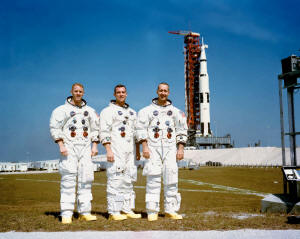|
McDivitt, who was selected for NASA's second astronaut class in
1962, was the commanding pilot for the U.S. space agency's
Gemini 4 mission in 1965 and Apollo 9 in 1969, a mission that
helped pave the way for the first human lunar landing.
The astronaut and retired U.S. Air Force test pilot died
"peacefully in his sleep surrounded by his family and friends in
Tucson, Arizona," NASA said in a statement.
McDivitt's two missions were instrumental in the Cold War-driven
space race between the United States and Soviet Union, whose
string of early spaceflight successes galvanized Washington to
pursue rival achievements such as the Apollo 11 first crewed
moon landing in July of 1969.
The fourth mission under Project Gemini, a precursor to NASA's
Apollo program, marked McDivitt's first flight to space.
During that four-day spaceflight, he oversaw the first American
spacewalk in which fellow astronaut Ed White floated outside of
their spacecraft for the first time, tethered by a cord.
McDivitt later joined two astronauts as commander of the Apollo
9 mission, a crucial debut flight test of NASA's Lunar Module
that would later land astronauts Neil Armstrong and Buzz Aldrin
on the moon during the Apollo 11 mission.
"Apollo 9 was a test pilot's ultimate dream mission: Jim
McDivitt & his crew tested many fundamental systems for the
subsequent Moon missions, making them - and the landing -
possible," Luca Parmitano, an Italian astronaut for the European
Space Agency, said on Twitter.
(Reporting by Joey Roulette; Editing by Bill Berkrot)
[© 2022 Thomson Reuters. All rights
reserved.] Copyright 2022 Reuters. All rights reserved. This material may not be published,
broadcast, rewritten or redistributed.
Thompson Reuters is solely responsible for this content.

|
|




